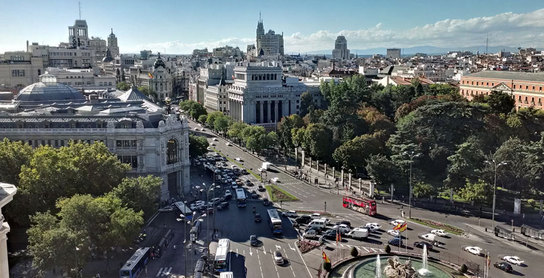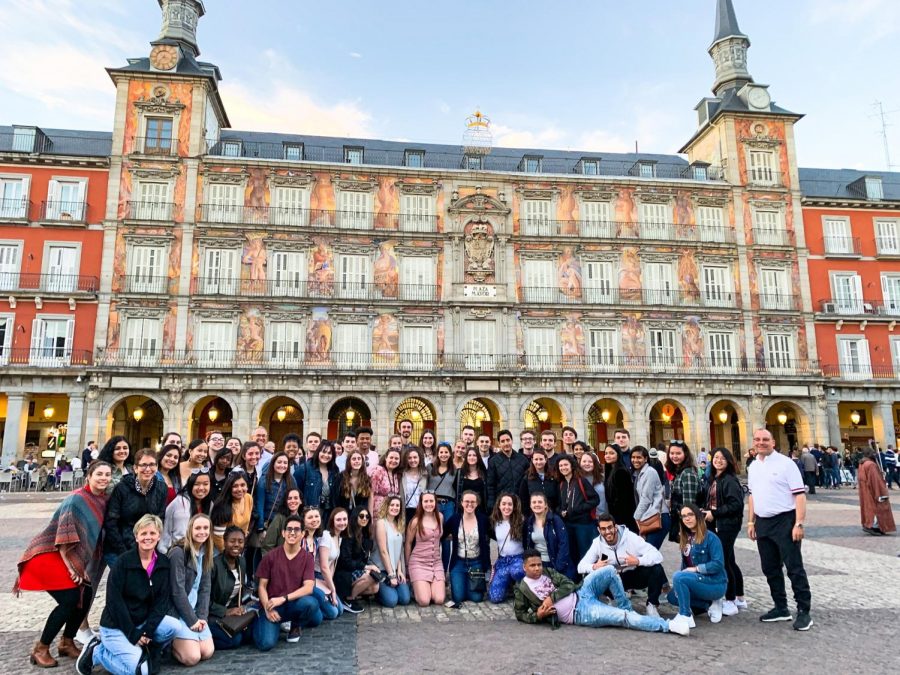Suffolk University’s Madrid campus is closed as the coronavirus pandemic continues to rage on.
In an email to students, Suffolk Provost Julie Sandell announced that the Suffolk campus in Madrid has been closed by Madrid regional authorities. Sandell said that Suffolk has arranged transportation back home for the U.S. students in Madrid and the first plane landed in Boston Wednesday morning, just hours before the U.S. government announced it will suspend flights with Europe.
President Donald Trump announced new travel bans that would halt most travel between the U.S. and Western Europe. However, with the new ban in effect, international students fear they might not be able to return home if new restrictions are applied.
“My parents fear that European borders would be closed and I will have to stay in the U.S. for an unknown span of time,” said Elizabeth Kuiun, a Suffolk freshman from Ukraine. “Currently, the situation around the virus tends to fluctuate and be very unpredictable. That is why I can’t be sure about any of my future travels.”
“I am now unsure whether I will be able to go back home and this makes me and my parents very nervous and frustrated,” said Kuiun.
Trump announced the new restrictions on travel from the Oval Office Wednesday night. Trump said the U.S. government suspended all flights from Western Europe, where thousands of people are confirmed to be infected with the virus, in response to the growing threat of the coronavirus.
Trump’s travel ban applies to 26 countries of the Schengen area: Austria, Belgium, Czech Republic, Denmark, Estonia, Finland, France, Germany, Greece, Hungary, Iceland, Italy, Latvia, Liechtenstein, Lithuania, Luxembourg, Malta, Netherland, Norway, Poland, Portugal, Slovakia, Slovenia, Spain, Sweden and Switzerland, according to The New York Times.
The restrictions will begin at 11:59 p.m. Friday, Eastern time.
There are some exceptions to the ban. Great Britain, Croatia, Cyprus, Ireland, Turkey and Ukraine will maintain a limited amount of flights between the U.S., according to The New York Times.
On Wednesday morning, the World Health Organization (WHO) announced that the coronavirus should be considered a global threat, instead of an epidemic with several outbreaks in certain parts of the world.
“WHO has been assessing this outbreak around the clock and we are deeply concerned both by the alarming levels of spread and severity, and by the alarming levels of inaction,” said Tedros Ahanom, the WHO Director-General, during a media briefing Wednesday.
“We have therefore made the assessment that COVID-19 can be characterized as a pandemic.”
The difference between an epidemic and a pandemic lies in scale, spread and danger of a virus outbreak. From now on, the COVID-19 outbreak is considered a global pandemic with more than 118,000 reported cases in 114 countries, according to the WHO website.
The last major pandemic in recent history was the 2009 flu pandemic. The H1N1 virus, also known as swine flu, had infected an approximate 0.7 to 1.4 billion people and killed from 150,000 to 500,000 thousand people worldwide.
On Tuesday, Suffolk University President Marisa Kelly announced in an email that all the classes will be conducted online for the rest of the term and residence will remain closed for students, with exception of international students and students with special circumstances.
Similar actions have been taken by European countries. Italy, Ireland, Greece, Czcheck Republic, Poland and several others have already closed all schools and universities, according to The Guardian.
For some of the international students, traveling back home could take up to 24 hours, which could easily extend with new travel restrictions in act.
“I am very concerned because traveling through Europe to Kazakhstan is the fastest way. And now I would have to choose other flights which would certainly take much longer,” Kristina Sheveleva, a Suffolk freshman from Kazakhstan. “I am also very worried about my friends who live in Europe.”



















